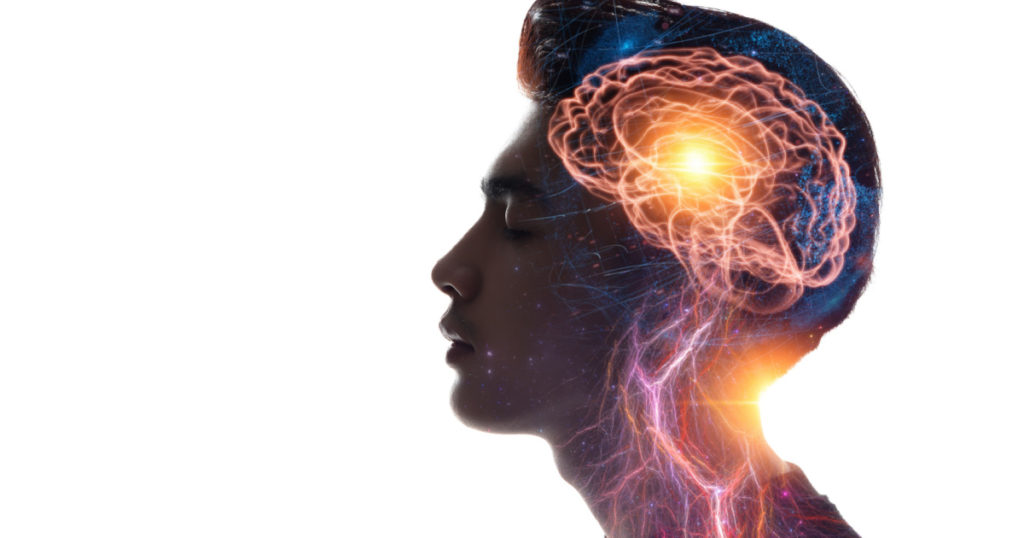Intelligence is often measured through IQ tests, but these tests don’t fully capture the depth of human intelligence. In fact, intelligence goes beyond numbers and includes various traits that show up in everyday life. From emotional awareness to adaptability, the signs of high intelligence can be observed in how individuals think, interact, and handle challenges. This article highlights 8 signs of high intelligence that cannot be faked, shedding light on how true intellectual ability manifests in ways that go beyond what is typically measured.
1. A Strong Sense of Self
One of the key signs of high intelligence is having a strong sense of self. People who are intellectually gifted tend to know who they are—what their strengths and weaknesses are. They are self-aware and can confidently make decisions based on their values and beliefs. This self-awareness extends beyond just intellectual capacity and includes understanding one’s emotional state, needs, and goals. Being able to set boundaries, express oneself clearly, and make choices aligned with personal values shows an individual’s depth of thought and emotional maturity, essential aspects of intelligence.
 Credit: Shutterstock
Credit: Shutterstock
2. Empathy and Emotional Intelligence
Empathy is an important element of emotional intelligence, and it plays a vital role in relationships and personal growth. Highly intelligent individuals often have an ability to understand not just their own emotions but also the feelings of others. They can read body language, listen attentively, and interpret subtle cues to grasp how others are feeling. This ability allows them to navigate social situations with ease, manage conflicts effectively, and build meaningful connections. Empathy is a skill that can be nurtured and developed, and when combined with cognitive abilities, it enhances overall intelligence.
 Credit: Shutterstock
Credit: Shutterstock
3. A Love for Solitude
While intelligent people are capable of building strong social networks, they also value their time alone. Solitude allows them to recharge, reflect, and pursue personal interests. Whether it’s spending time reading, engaging in a hobby, or simply reflecting on life, this time alone is crucial for intellectual development. Intelligent people understand the importance of balance between social interactions and alone time, and they use solitude to process thoughts, learn new things, and grow. It’s this ability to balance their social needs with their personal needs that reflects emotional and intellectual intelligence.
4. Curiosity and a Desire to Learn
Curiosity is another key trait that is commonly found in highly intelligent people. They possess a strong desire to explore, ask questions, and seek out knowledge from diverse sources. Whether it’s learning new skills, delving into a complex subject, or traveling to new places, intellectually advanced individuals are always seeking to broaden their horizons. Their curiosity doesn’t stop at surface-level information; they dig deeper and are eager to understand the underlying causes of phenomena. Their thirst for knowledge keeps them learning, evolving, and adapting to the world around them.
5. Excellent Observation Skills
Highly intelligent individuals tend to have sharp observation skills. They are keenly aware of their surroundings and can spot patterns that others might miss. This ability to observe closely can lead to insightful conclusions and a deep understanding of the world. Whether it’s noticing a change in a person’s behavior, catching subtle details in their environment, or recognizing trends in data, intelligent people rely on their observation skills to inform their decisions and judgments. This skill also enhances their ability to empathize with others and engage in meaningful conversations.
 Credit: Shutterstock
Credit: Shutterstock
6. Strong Memory and Retention
Memory is often associated with intelligence, and highly intelligent individuals tend to have strong memories. Whether it’s remembering faces, names, dates, or complex information, intelligent people can store and recall details with ease. This can manifest in different ways, such as having a photographic memory for images or remembering the way to a location they visited years ago. Strong memory also plays a role in problem-solving and decision-making, as it allows individuals to draw from past experiences to guide their choices.
7. Understanding and Accepting Limitations
Highly intelligent people are aware of their limitations and don’t shy away from acknowledging them. Rather than pretending to know everything, they are humble enough to admit when they don’t have all the answers. This trait not only makes them open to learning from others but also helps them seek help when needed. They understand that intelligence isn’t about being perfect; it’s about continuously improving and being willing to face challenges head-on. This self-awareness and willingness to grow is a critical component of high intelligence.
8. Adaptability in the Face of Change
Life is unpredictable, and intelligent individuals know how to adapt to changing circumstances. Whether it’s dealing with personal setbacks, career changes, or unexpected events, they are flexible in their approach and resilient in the face of adversity. Adaptability allows them to navigate uncertainty with ease and learn from new situations. This trait is closely linked to emotional intelligence, as it involves managing one’s emotional response to challenges while adjusting one’s behavior and thinking accordingly. Intelligent people don’t just survive change—they thrive in it.
 Credit: Shutterstock
Credit: Shutterstock
Conclusion: Intelligence Beyond the Test
While IQ tests can measure certain aspects of intelligence, they fail to capture the full spectrum of human intellectual abilities. True intelligence is multi-faceted and can be seen in a person’s ability to adapt, empathize, observe, and understand both themselves and others. The signs of high intelligence discussed in this article—such as a strong sense of self, curiosity, and emotional awareness—are traits that cannot be faked. They reflect a deep understanding of the world, the ability to grow, and a willingness to learn from experiences.
As you reflect on your own life and the people around you, you may begin to notice these signs of intelligence in yourself and others. By recognizing these traits, we can foster a deeper appreciation for the different ways intelligence manifests in our lives.
Related Articles for Further Reading:
- 10 Signs You’re Eating Too Much Sugar
- 7 Words Depressed People Use More Often – How to Recognize the Signs and Offer Support
- Man Over 700 Eggs in One Month – A Surprising Experiment and Its Impact on the Body
- 20 Early Signs Your Body May Be Fighting Cancer – Understanding the Signals for Better Health
This revised article is designed to improve SEO performance by focusing on key traits of intelligence, and includes relevant keywords to increase RPM and drive traffic effectively.

